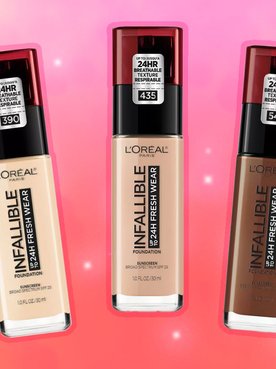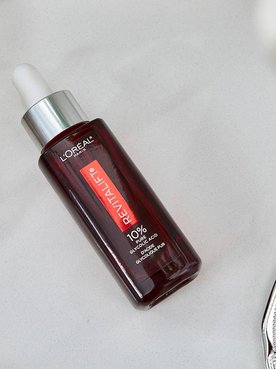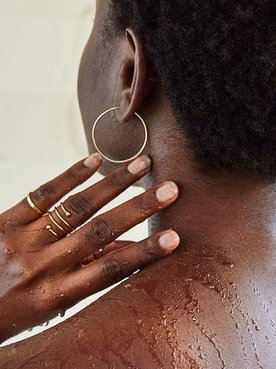
When life gives you limes in the summer, the obvious choice is to throw them into a margarita for sipping while you sit back and relax — just make sure to wash your hands thoroughly to help avoid a super unfortunate skin rash.
According to the American Academy of Dermatology (AAD), phytophotodermatitis occurs when sunlight reacts to lime or citrus juice on the skin. Never heard of it? Don’t worry — we were in that boat for a long time too. So we reached out to NYC-based board-certified dermatologist (and director of Cosmetic and Clinical Research at Mount Sinai Hospital) and L’Oréal Paris consultant, Dr. Joshua Zeichner, to get the lowdown on this sneaky, summer skin rash.
What Is Phytophotodermatitis?
Lime, summer skin and the sun’s rays can make for a really bad combination. But what exactly is phytophotodermatitis? The most common form of phytophotodermatitis or “margarita burn” occurs when “juice from the lime gets onto the skin, which reacts to sunlight causing the response,” says Zeichner.
“Some people initially develop a red rash that may even blister,” Zeichner continues. “In other people there’s no observable initial rash, but the skin ultimately develops a dark brown blotch in the area where there was previously an exposure.”
Sunburns are a constant on our minds during the summer and if you handle limes frequently, it’s time to add phytophotodermatitis to that list.
What Does Phytophotodermatitis Typically Look Like?
Think of phytophotodermatitis as a chemical burn — while it may not affect everyone the same way, it’s not something you want to inadvertently put your skin through. “Phytophotodermatitis commonly happens on the hands, on the wrists and has an appearance that shows where the juice drips down the hands,” says Zeichner. “In other cases, there may be tiny dots that represent where the juice sprayed onto the skin when squeezing a lime.”
Tips to Prevent Phytophotodermatitis
Spoiler — preventing phytophotodermatitis is much easier than you think. According to Zeichner, the best way to avoid this rash is to thoroughly wash your hands with soap and water after handling limes and before heading outdoors. It’s important to note that this goes for any area of the body that you may have touched after handling limes, including your face. The same rash that can pop up on your hands can do the same thing to your complexion and that’s definitely something you want to avoid.
The takeaway? Proceed with caution when you’re handling limes prior to or while you’re outdoors. Phytophotodermatitis is not one size fits all but even something as simple as squeezing a lime into your drink can lead to it if the juice gets on your skin. Does this mean you should avoid limes in your sweet summer cocktails? Absolutely not — just make sure to wash your hands thoroughly after contact.
Editor’s tip: If you’re on margarita duty this summer, be extra safe and wear gloves when handling large quantities of limes before heading outdoors — just don’t forget to wash your hands after.
Avoid Lime Juice in Your Beauty Routine
Using the juice of limes or lemons on your hair is a commonsummer beauty hack but it’s also the perfect recipe for a phytophotodermatitis disaster on your hands, back and shoulders. We suggest an at-home color kit like hair-safe bleach, instead. We love theL’Oréal Paris Hyper Platinum Advanced Lightening System Bleach in Extra Bleach Blonding to lighten strands because it can lighten hair up to eight levels and works on even the darkest of strands.
Social media hacks come and go. So, save your limes and lemons for your summer drinks, not yoursummer hair care or skin care! Based on what we've learned from Zeichner, it’s a good idea to avoid putting lemons or limes directly on your skin altogether.
If you think you may be experiencing phytophotodermatitis, consult with your doctor right away for treatment options.
Next: How to Pick the Right Sunscreen for Your Skin Type
Written by: Reece Andavolgyi, Design by: Crystal Simone




